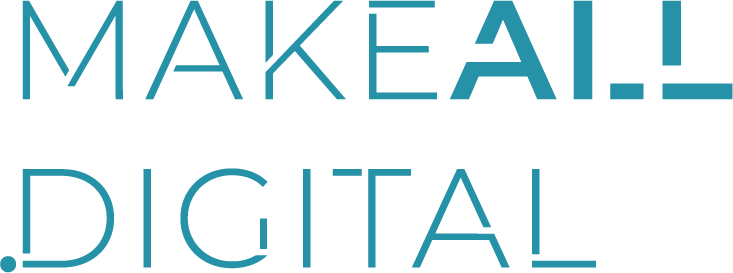How to get a remote job when you’re running against hundreds of candidates from all over the world? Before looking for a remote job, read our tips carefully.
In my entire professional life, I must have a few months registered on my work card — in one way or another, I always opted for remote work. I’ve been a communication agency since I was 21, and my focus has always been on large and medium-sized companies. Dealing closely with the Human Resources and Marketing teams of these corporations, I see an increasing difficulty in hiring new professionals. People are tired of closed offices, rigid work schedules and mindless commute times.
In response to this growing desire to achieve work-life balance, opportunities for remote work and companies with distributed teams around the world have increased exponentially. I myself am now based in Portugal, I have employees in Portugal and Brazil (each in a different city) and clients in Brazil, England, Spain, Germany, Sweden — in addition to running projects in Latin America.
There is, however, an important question: how do you get a remote job when you are running against hundreds, or even thousands, of candidates from all over the world? This is an issue that has gained even more relevance in the last couple of years, when many more people around the world have discovered the advantages of working from home. So, before looking for a remote job, carefully read the tips below.
1. Be careful not to sacrifice quality for quantity
It’s tempting to submit your resume for all the positions that remotely (look at the pun!) fit your experience. Unfortunately, people who use this method usually write a standard letter and come out for all potential customers or employer.
You won’t stand out that way. Instead of sending your resume to 20 jobs a day, focus on the ones you really want and make more assertive approaches. Go deep into what you want, instead of being shallow with many.
This is also valid when there are several open positions in the same company. You can apply for more than one position if you are qualified for each one. However, do not apply for more than three positions, especially when they are in very different activities. Focus on your experience and the value you can bring to the team and communicate this clearly.
Digging deep into some companies means putting extra time and effort into not only your application, but also networking. Build connections with team members you want to work on and find opportunities to interact with them on social media. Show that you are genuinely interested in what they do. In addition to turning the company’s radar on your side, you will be able to access information that will be important during the hiring process.
2. Do a proper research before applying
 This question appears in every hiring process: why do you want to work here? And you can only have a coherent answer if you’ve done your homework: extensive research on the company.
This question appears in every hiring process: why do you want to work here? And you can only have a coherent answer if you’ve done your homework: extensive research on the company.
What are the organization’s values?
Does it has a mission? Which is?
What are the company’s goals for the coming years?
What is the company’s origin? Where and when was it founded?
Who is the hiring manager for this position?
What is the organization’s culture?
All of these answers, of course, are a Google away. Search the company’s website, its social networks, events in which key employees participated. You can even set up a Google alert for the company and its founders, so you stay on top of everything that’s published.
Sites like Glassdoorcan also help you see what current and former employees have to say about the company. Although you should not base your opinion on individual assessments, these can help you write a compelling cover letter or even raise questions during the interview.
I think it’s clear by now that applying for a company with employees spread across the globe isn’t much different from a traditional company. In fact, I would say that you should do even more research and show that you are interested in the company’s business model, product, and culture, and not show that remote work is your main motivator.
3. Pay attention to the presentation letter
Companies usually ask for a presentation letter to accompany the resume. Your CV tells the company what you’ve done in the past, and the letter should include the following:
- Why are you interested in the vacancy?
- What will be your contribution to this company?
Even if it’s not asked, write the presentation letter. The reason behind your application is critical in all positions, but even more for a company whose work is remote. In an organization that does not have a physical location to facilitate the development of organizational culture, it is important that everyone shares mutual values and is motivated by the same mission.
Another purpose of the presentation letter is to help companies to know your written communication skills. In remote work, where asynchronous communication is fundamental, interactions are basically through texts.
It’s worth remembering that a generic presentation letter is almost as ineffective as no presentation letter at all. The “copy + paste” is not valid here. If a presentation letter can be used for multiple applications, it is generic.
Be specific. After all, you’ve already done extensive research about the company and the position you want, haven’t you? Many candidates miss the opportunity to stand out because they put a summary of their resume in the letter, not the way they intend to contribute to the company they are applying for. If you feel the need to summarize your resume, make the adjustments directly there, not in the presentation letter.
Here in MakeAll.Digital, for example, we have a multi-question form that we send to candidates, with questions tailored to the position they have applied for. But the last question is always the same: Why do you want to join our team? Do your personal marketing! It is a way of encouraging people to write their presentation letter.
On the other hand, a good presentation letter can even replace your resume when you don’t yet have professional experience to show for it. I did this when I was 14 years old. I wanted to experience the profession of journalist, to experience the day-to-day life before going to college. I wrote about these intentions of mine for all “two” newspapers in the city where I lived, in the interior of São Paulo, and BOTH called me: one to be a proofreader (modesty aside, I already wrote well at that time) and the other to work with the journalism team, making the production of the guidelines. I went to the second and stayed there for two years, until I went to college and moved to another city. I hadn’t even started college, but I was accepted because of the letter I wrote!
4. Don’t overemphasize your desire for remote work
 There’s no denying the appeal and benefits of working remotely. And it’s okay for you to acknowledge that you enjoy remote work, but there’s a fine line between doing it and making it clear that your main motivation is working from home or traveling the world. Especially when you are applying for a permanent job.
There’s no denying the appeal and benefits of working remotely. And it’s okay for you to acknowledge that you enjoy remote work, but there’s a fine line between doing it and making it clear that your main motivation is working from home or traveling the world. Especially when you are applying for a permanent job.
On the other hand, demonstrating your ability to work independently, with productivity and organization, and putting it into a flexible working arrangement is always an advantage. How will remote work help you develop your best potential for the company you are applying for? Answering that question is more important than saying why you would like to work from home.
If you’ve already had experience working remotely, take advantage of it and explain that you have the skill set needed to thrive without supervision. If you’ve never had a remote job, demonstrate that you have strong communication skills, the ability to work autonomously, and responsibility.
5. Don’t let interviews be one-sided
Congratulations, you got an interview! You are now closer to getting the remote job you want. As with any interview, you will be asked a series of questions about your past experience and future ambitions. And it’s the best opportunity to put everything on the table.
Demonstrate your knowledge, show that you are work ethic, transparent and communicative — these are essential skills for remote work.
Remember, too, that the interview is the time for you to find out if that job is really for you. Therefore, prepare a set of questions about the company and the position. Not the ones you might have answered with an internet survey, but a few questions that show the interviewer that you’ve gone deep into the company. Asking questions that are answered on the company’s homepage is a fatal mistake. On the other hand, referring to specific sources that generated your doubts can add credibility to your interest in the company.
Letting the interview flow both ways, answering and asking, shows that you are investing your time to earn that position.
6. Know how to deal with rejection
 Unfortunately, only one candidate gets the job. After investing so much time in that application, it is frustrating to receive a rejection email or, worse yet, no response at all. Some candidates make expressions of displeasure, via email or even on social media, and this can end their chances of being considered for future vacancies.
Unfortunately, only one candidate gets the job. After investing so much time in that application, it is frustrating to receive a rejection email or, worse yet, no response at all. Some candidates make expressions of displeasure, via email or even on social media, and this can end their chances of being considered for future vacancies.
Instead of responding in a way you might regret, use the opportunity to ask for feedback. Not all companies respond, but you have nothing to
lose asking. And at best, you can receive valuable feedback that will help you apply for a new opportunity or re-apply to the same company. Asking for feedback also demonstrates that you have a growth mindset.
Feedback often has a positive intent — to try to help you improve, to show your knowledge gaps or weaknesses. That way, you can understand yourself more, reflect and work on improving your skills.
If you find you are getting a lot of negative responses, take the time to assess why this is happening.
- Are you applying for roles that are way beyond your experience or skill set?
- Is it clear in your application why you are applying?
- Are you consistently making the same mistake in the application or interview?
Asking for feedback can help you identify any issues in your approach to correcting them before reapplying.
I hope all this information can motivate you to pursue your remote job. The vast majority of candidates make many of these basic mistakes. If you follow these principles, you will come out ahead.
I say this as an interviewee and as an interviewer, because I’m always on both sides of the table. I’ve had clients who took about a year in negotiations to hire me, but in the end they stayed with me for more than eight years. Showing the value I can add to companies, even as an external consultant, has been my greatest tool for winning clients over the last 35 years. Do it for you too!
Read more
Do I need to have a very large team?
Reading the previous articles in this series on digital presence, you may have realized how important planning is. To define the best channels to be used and a strategy applied to each one of them will need to be well processed. And thinking about all that good...
Is it okay to repeat the post?
Have you ever wondered whether or not to repeat the content that has already been posted? See our suggestions.
What is the best channel to invest in today?
Each communication channel has a different function: attract, retain, convert, etc. Learn how to use them correctly.




